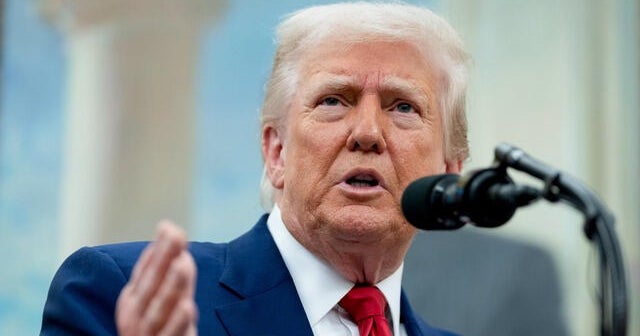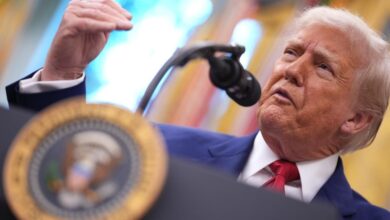Court strikes down most of Trump’s tariffs, ruling them illegal

A recent ruling from the U.S. Court of International Trade has put a halt to most of the tariffs imposed by President Trump on foreign nations, citing that the levies exceed the president’s legal authority. The court blocked the sweeping 10% tariffs that were imposed on virtually every U.S. trading partner, as well as separate tariffs imposed on China, Mexico, and Canada by the Trump administration.
The decision by the panel of judges has caused global markets to rally in response. The Trump administration had justified the tariffs by invoking the International Emergency Economic Powers Act of 1977, which grants the president the power to regulate imports during certain emergency situations. However, the court rejected the government’s interpretation of the law, stating that it would be unconstitutional for any law passed by Congress to give the president blanket authority to set tariffs.
The court found that the global 10% tariffs were not authorized by the IEEPA because they were aimed at addressing trade imbalances, which should fall under non-emergency legislation. Additionally, the tariffs on China, Canada, and Mexico were deemed illegal as they did not address the threats outlined in the orders. The ruling was issued by three judges nominated by former Presidents Ronald Reagan, Barack Obama, and Trump.
The Trump administration has announced its intention to appeal the ruling to the Federal Circuit Court of Appeals. In response to the decision, White House spokesperson Kush Desai defended the reasoning behind the tariffs, stating that the U.S.’s trade deficits with other countries have created a national emergency impacting American communities.
Tariffs have been a key component of President Trump’s second-term agenda, with the aim of boosting U.S. manufacturing and addressing what he sees as unfair trade practices. However, these moves have caused turbulence in financial markets and received criticism from both Democrats and some Republicans. Despite standing by his tariff strategy, President Trump has halted many of the levies while expressing a willingness to negotiate with trading partners.
The tariffs have sparked lawsuits from businesses, Democratic states, and other parties. The ruling was related to two lawsuits filed by a group of businesses harmed by the tariffs and several states. Some of the legal challenges against the tariffs have invoked doctrines championed by conservative lawyers and judges to limit the authority of executive branch agencies, such as the major questions doctrine and the nondelegation doctrine.
Overall, the ruling by the U.S. Court of International Trade represents a significant setback for President Trump’s tariff policies, highlighting the legal challenges and controversies surrounding his trade agenda.




